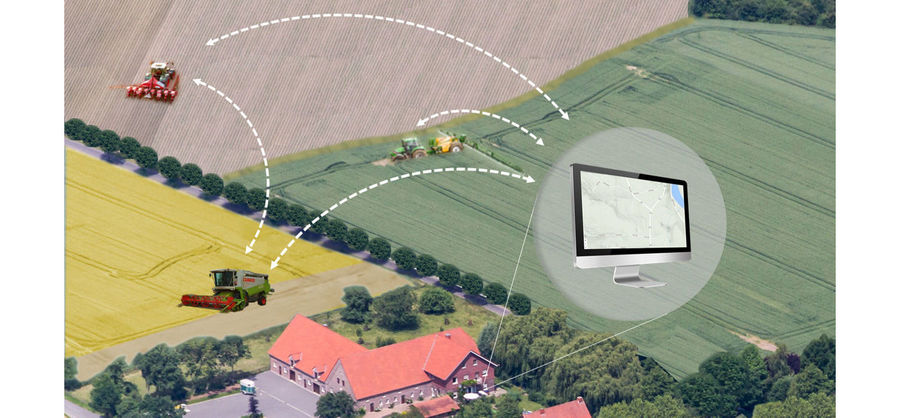Precision Farming – a new generation in agriculture
Precision Framing is an umbrella term, used for all methods helping the famer to a more accurate cultivation. Hence, company-owned service records, used for evaluation, are equally part of precision farming like the use of modern equipment like nitrogen sensors for required fertilizer determination, or GPS-systems used as steering assistants for accurate cultivation.

Precision Farming on the field
In previous years a strong modernization was to be recognized and technologies like steering assistants or automatized section control have been considered standard equipment of a well-equipped farm. This development results in more precise cultivation measures. A major part, precision farming being one of them, is subarea cultivation. An earnings potential analysis within one section is meant with this way of cultivation. Different earning potentials derive from data, which is taken over a long period, ideally on a regular basis. The results of the analyses are depicted in a yield potential diagram, which lays the basis for further work steps like seeding, bringing out manure, applying fertilizer, etc. Consequently heterogeneous soil may be used efficiently which leads to savings in supply that form a financial as well as ecological relief.
Precision through recording
It is the aim of service and expenditure records to collect as much data as possible from one operation, to get analyses from yield, service and expenditure of operational equipment. This data forms an essential part of precision farming. There is no unified system which may be used by all. With the help of records every farmer may analyze, evaluate certain departments of his business and find weak spots. The latter may be eradicated and strengths can be forwarded.
Only few specialized farms use such records regarding services, yields, expense of operating and auxiliary materials. This fact will be changed within the coming years.
Conclusion
Modernization has, like in many economic sectors found its way into agriculture and lead to exciting developments, which promises a more gentle dealing with resources without enforcing regresses.